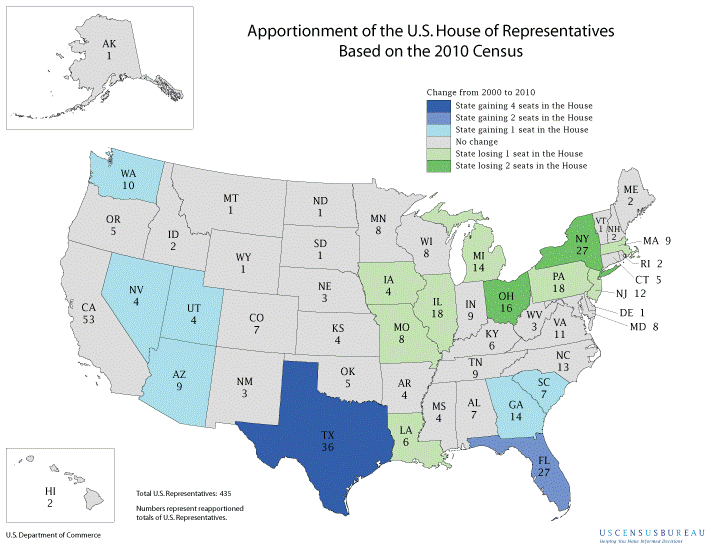The CENSUS ENGAGEMENT Cohort
With the drama of the recent midterms and the upcoming 2020 elections, it’s easy to overlook the 2020 Census but we simply can’t afford to ignore this crucial, country-wide count. The 2020 Census will be used to distribute more than $675 billion in federal funds and will determine which states gain or lose a congressional seat. The mission of the Census Engagement Project is to effectively engage digital-first and online networks and emerging membership-based organizations at the forefront of the new wave of civic engagement in 2020 Census work. From countering dangerous misinformation online to filling critical volunteer and staffing role, to adopting the strategies, tools, and lessons these organizations piloted in midterm election GOTV efforts, there is crucial work that falls within the specific expertise and capacity of these organizations.
Our goal is to raise $250,000 by the end of 2018 in order to launch the Census Engagement cohort in early 2019 to ensure that these organizations are effectively plugged in to efforts to get out the count. If you would like to contribute, you can make a secure, online donation here or contact our Executive Director, Deborah Barron if you’d like more information.
The Challenge
As the Census Bureau gears up for 2020, civic organizations, policy experts, and scholars are sounding alarms about the implications for representative democracy and distribution of resources that reflect our aspirations to be a pluralistic, welcoming, equal, and just country.
The 2020 Census has been riddled with administrative challenges from leadership transitions to stagnant budgets. Administrative roles are understaffed and underfunded.
Rising white nationalist political efforts aim to further disenfranchise and exclude communities and increasingly dangerous conditions for immigrants, regardless of status, could reduce participation.
The first online-enumeration process has potential for both failures and misuse.
A volatile media environment quickly spreads disinformation and fear.
Many of the member-based advocacy groups and online civic networks that collectively reach millions of people were created after the last (2010) Census. They lack the knowledge, content, funding, or expertise to run Census-related efforts in 2019/2020. They are trusted voices in their communities with the capacity to counter disinformation and/or have highly motivated and engaged volunteers who can be mobilized to amplify the work of legacy civil right organizations on the ground (i.e. bring new energy,tools and people to the work).
There is no current structure to bring lessons, innovations, and tools pioneered by these organizations through GOTV and mobilization during the midterms to the legacy 501(c)(3) organizations leading census work.
There is a need in the field for increased partnership between legacy civil rights and both emergent member-based advocacy groups formed after the 2016 election and digital-first organizations and networks to share learning, increase collaboration, and amplify impact (for the census and beyond).
The Solution
Use 2019 to give 8-10 of the most effective digital-first and emerging, member-based organizations the support they need to play a critical role in the 2020 Census by becoming early trusted sources of information, mobilizing members for rapid response advocacy opportunities, and bringing new volunteers, tools, and ideas to the get-out-the-count effort.
We will choose a select cohort of 8-10 organizations who have a wide grassroots reach into under-counted populations, use sophisticated viral media strategies, mobile and online tools to coordinate action on the ground, are known and trusted networks in communities of color, and/or have nation-wide chapters with highly motivated and active volunteer members.
The Program
We will connect these digital, online, and member-based advocacy groups to the information, coalitions, and resources they need to run Census-related programs. Specifically, we will enable these organizations to better serve as:
Trusted sources of accurate information about the Census
Messengers to encourage under-counted, multilingual, and/or hard-to reach populations to respond to the Census and mitigate potential dangers posed by the Census process
Force-multipliers of larger legacy organizations’ on-going census work and messaging
Sources for mobilization of high-engagement volunteers for local on-the ground Census work organized through existing larger civil society organizations (e.g., staff enumerator programs or volunteer opportunities led by community-based organizations and regional alliances)
Catalysts for mass rapid response advocacy (e.g., comments on Census questions, responding quickly to the spread of disinformation, etc.,)
Innovation hubs to pilot engagement projects and deploy tech tools and best practices, with capacity for rapid iteration and experimentation that can be shared widely with the field.
Partners
This cohort will be a joint effort between three organizations:
18 Million Rising has strong relationships with other digital organizing groups and nonprofits representing people of color, immigrant, Muslim, LGBTQ+, and/or low-income communities nationwide.
The Capacity Shop, and NLA have the structure and expertise to work with organizations regardless of their legal structure. NLA has experience supporting groups that grew in a political context but can be activated as civic networks and is able to work with non-501(c)3 organizations, mitigating concerns from funders and other nonpartisan organizations about how to engage 501(c)(4) and other emerging advocacy groups currently under-utilized in the census.
Census Outreach is an expert on all things Census, providing training and tech for nonprofits and agencies to conduct effective Census canvassing, volunteer recruitment, enumerator recruitment, education, and assistance; they will support the project’s 501(c)(3) education related work.
Funding Needs
We are seeking funding partners who are ready to invest in taking advantage of the crucial opportunities the upcoming Census offers. Funding commitments in the last quarter of 2018 will be critical to ensure the program can launch in the first quarter of 2019. If you would like to support this effort, you can make a secure donation here. If you would like more information, please contact us.





